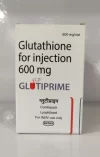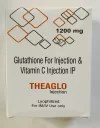It seems promising, but my risk tolerance would require a major benefit to use a novel compound so early, I really want at least a decade of other people using it to know there's not some potentially awful consequence that's not yet uncovered because enough time hasn't elapsed and not enough people have been exposed to it.
I'll note the TLDR of this peptide is that it prevents bacteria moving from the intestines to the bloodstream, where it's killed by the immune system. The remnants of bacterial cell walls, endotoxins, which an ever growing body of evidence point to being the trigger of many types of long term disease, in this case, metabolic, resulting in obesity and higher diabetes risk, as well as Alzheimer's, the sufferers of which have very high levels of endotoxins.
Despite the precise mechanisms of harm caused by endotoxin exposure just beginning to be understood, its clear the less the better, with everyone from the World Health Organization to the FDA understanding the need to keep CUMULATIVE exposure to endotoxin exposure to an absolute minimum, particularly in parenterals (injectable meds), where we have no natural defense to filter them out.
Those of us using peptides and gear are at particular risk, because of the volume of unregulated substances we inject.
It's impossible to rid them via sterilization, testing levels is challenging and inaccurate, at best, and the only effective strategy available to us is to keep them out to begin with. For peptide users, using PHARMA BAC water only, which is endotoxin free, will go a long way. For home brewers, using endoxtoxin free excipients specifically made for injectables like Benzyl Alcohol would help lower the amount the ends up in the finished product. .
"THE ENDOTOXIN CHALLENGE
It is difficult to remove endotoxins from raw materials, and nearly impossible to remove them from the formulation. Compared to other types of formulations, endotoxins in parenteral formulations pose an added risk to patient safety. Therefore, these have stricter regulatory requirements with respect to endotoxins.
Precautionary measures are therefore critical especially when the materials are from natural sources or are biologically produced, or when non-sterile bulk steps or preservation-free solutions are involved."




